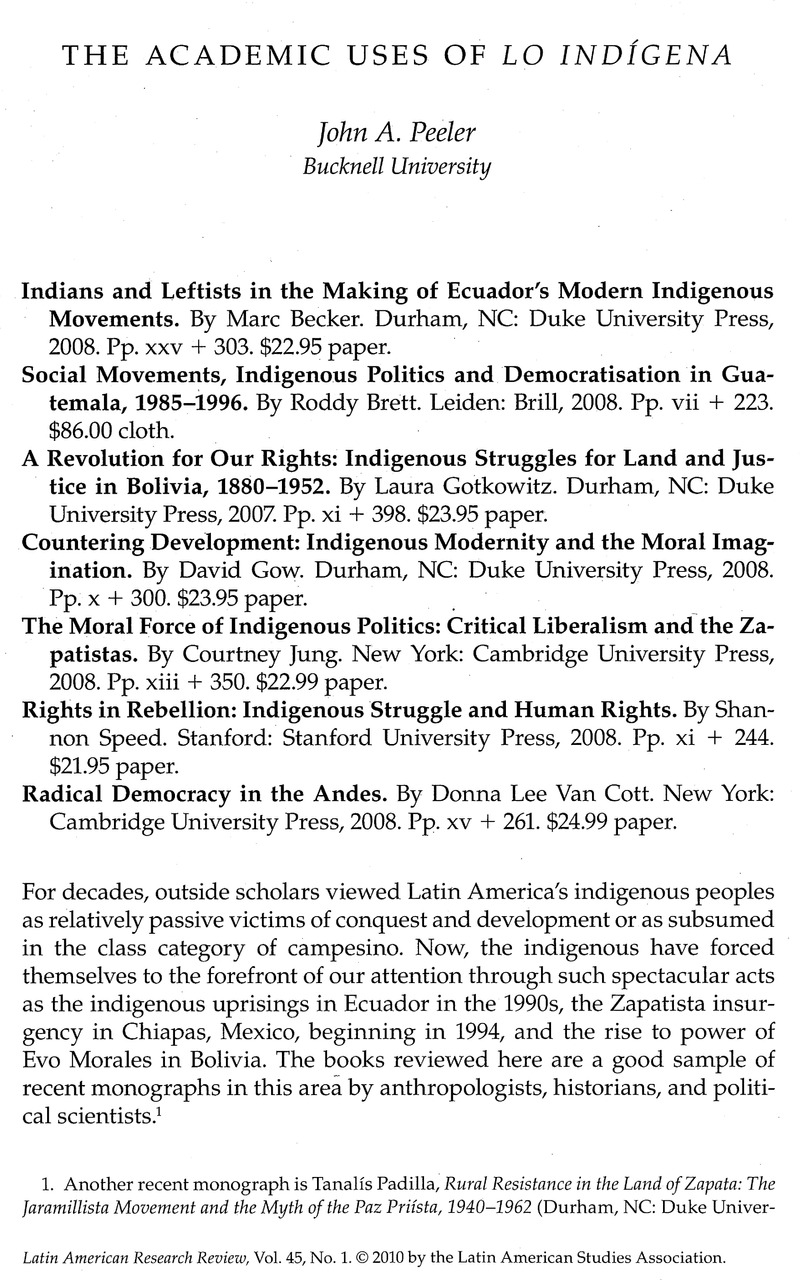No CrossRef data available.
Published online by Cambridge University Press: 05 September 2022

1. Another recent monograph is Tanalís Padilla, Rural Resistance in the Land of Zapata: The Jaramillista Movement and the Myth of the Paz Priísta, 1940–1962 (Durham, NC: Duke University Press, 2008). This book is highly relevant, but it defines resistance to Mexico's Partido Revolucionario Institucional hegemony largely in terms of campesino rather than indigenous rebellion. Excluded from my review essay are works in literary and cultural criticism, such as Brian Gollnick's Reinventing the Lacandón: Subaltern Representations in the Rain Forest of Chiapas (Tucson: University of Arizona Press, 2008), and edited volumes, which may provide excellent overviews of a field but typically lack the clearly defined argument of monographs. Three recent examples are Pamela Wilson and Michelle Stewart, eds., Global Indigenous Media: Cultures, Poetics, and Politic (Durham, NC: Duke University Press, 2008); Henry Minde, ed., Indigenous Peoples: Self-Determination, Knowledge, Indigeneity (Delft: Eburon Academic Publishers, 2008); and Salvador Martí i Puig, ed., Pueblos indígenas y política en América Latina: El reconocimiento de sus derechos y el impacto de sus demandas a inicios del siglo XXI (Barcelona: Fundació CIDOB, 2007).
2. Outstanding Latin American scholars include Xavier Albó on Bolivia, Carlos Iván Degregori on Peru, León Zamosc on Ecuador, Demetrio Cojti-Cujil on Guatemala, and Xóchitl Ley va-Solano on Mexico. Outstanding comparátivists in both English and Spanish include Xavier Albó, Deborah Yashar, León Zamosc, Kay Warren, Nancy Grey Postero, and Donna Lee Van Cott.
3. Kay Warren, Indigenous Movements and Their Critics (Princeton, NJ: Princeton University Press, 1998); Deborah Yashar, Contesting Citizenship in Latin America: The Rise of Indigenous Movements and the Postliberal Challenge (Cambridge: Cambridge University Press, 2005).
4. Michael Hardt and Antonio Negri, Empire (Cambridge, MA: Harvard University Press, 2001).
5. See John Peeler, Building Democracy in Latin America, 3rd ed. (Boulder: Lynne Rienner, 2009), chap. 7.